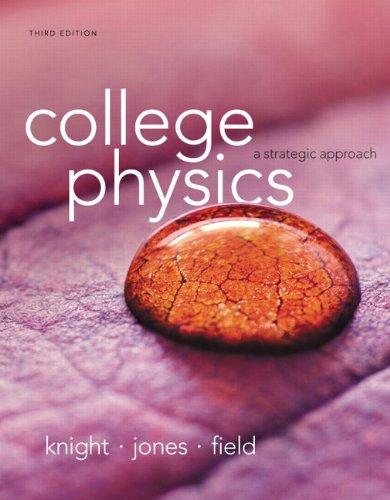If she doubles her speed to (10 mathrm{~m} / mathrm{s}), how much energy does she use in
Question:
If she doubles her speed to \(10 \mathrm{~m} / \mathrm{s}\), how much energy does she use in cycling \(1 \mathrm{~km}\) ?
A. \(20 \mathrm{~kJ}\)
B. \(40 \mathrm{~kJ}\)
C. \(200 \mathrm{~kJ}\)
D. \(400 \mathrm{~kJ}\)
When you ride a bicycle at constant speed, almost all of the energy you expend goes into the work you do against the drag force of the air. In this problem, assume that all of the energy expended goes into working against drag. As we saw in Section 5.6, the drag force on an object is approximately proportional to the square of its speed with respect to the air. For this problem, assume that \(F \propto v^{2}\) exactly and that the air is motionless with respect to the ground unless noted otherwise. Suppose a cyclist and her bicycle have a combined mass of \(60 \mathrm{~kg}\) and she is cycling along at a speed of \(5 \mathrm{~m} / \mathrm{s}\).
Step by Step Answer:

College Physics A Strategic Approach
ISBN: 9780321907240
3rd Edition
Authors: Randall D. Knight, Brian Jones, Stuart Field





